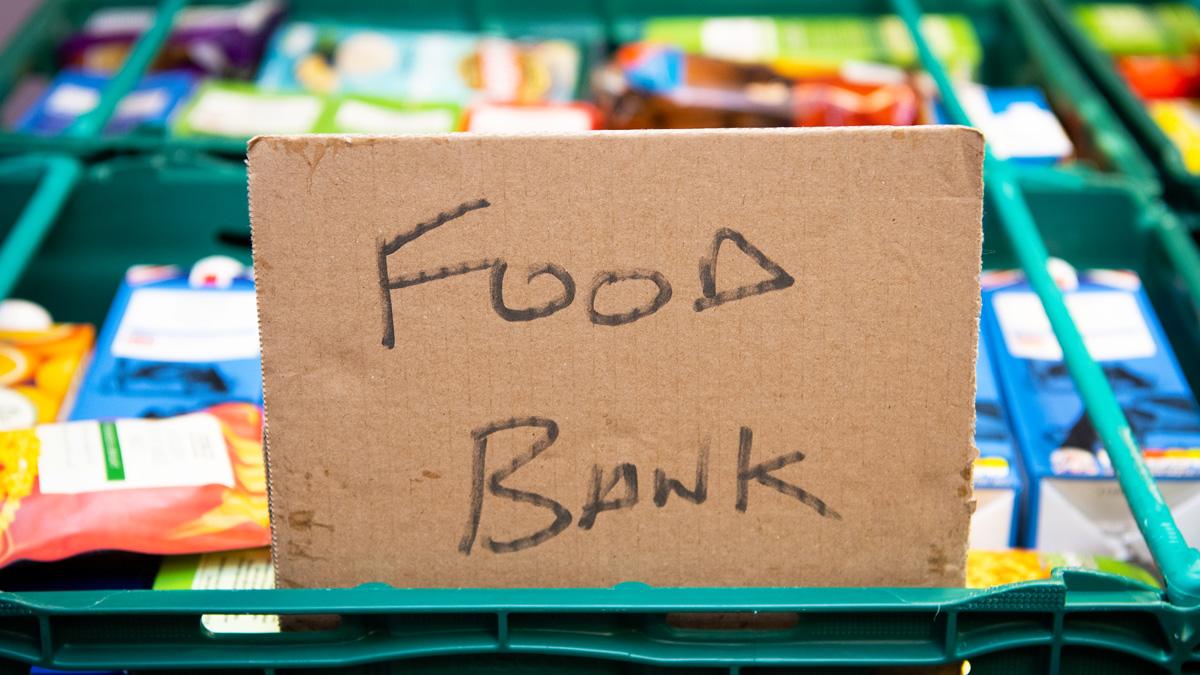Covid: The baby bank helping families living in poverty
- Published
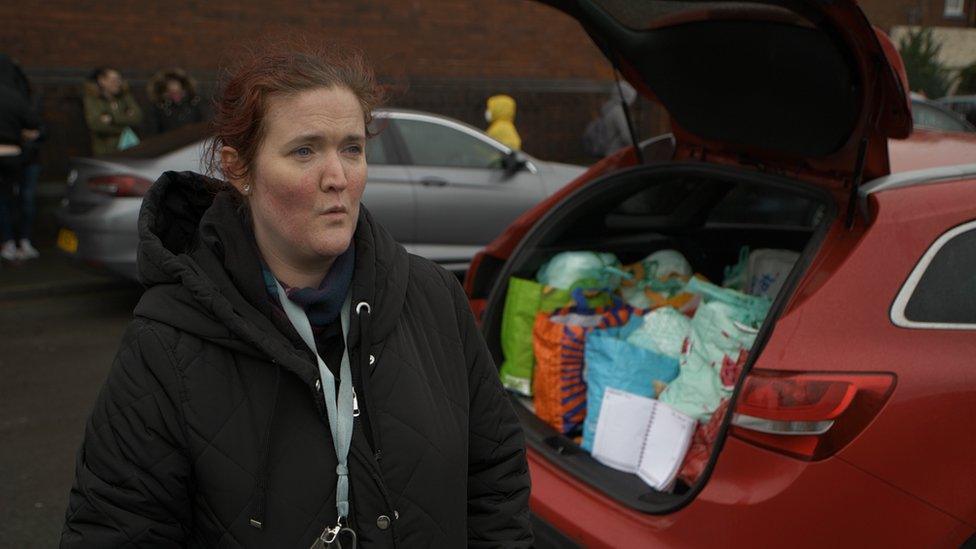
Emilie de Bruijn says increasing numbers of people are asking for help from her baby bank
The boot of the red car lifts up to reveal a sea of plastic bags. Inside each one are the essentials for bringing up young children: nappies, wipes, baby food and shampoo, as well as sanitary items for their mums - all free to those in need.
Within a minute or two, the first customer arrives. Soon followed by another, and another. Since the first lockdown, on every Thursday Emilie de Bruijn runs this "baby bank" out of the back of her car in Hartlepool.
Covid has put paid to the indoor space she used in normal times. It's also increased demand amongst families now suffering real and deepening hardship.
Her parking spot is beside a church which doubles up as a food bank. On the freezing Thursday we visited, almost 100 people queued in the cold for several hours for the food parcels on offer there. Among them were parents with pushchairs and young children, who stepped out of the queue to collect some baby basics before rejoining it as it crept towards the church door.
"It's just getting harder and harder," Emilie told me. "We are increasingly finding people who have been furloughed or laid off work coming to us and saying, 'I'm so sorry. I never thought I'd see myself in this position. Can you help me?'"
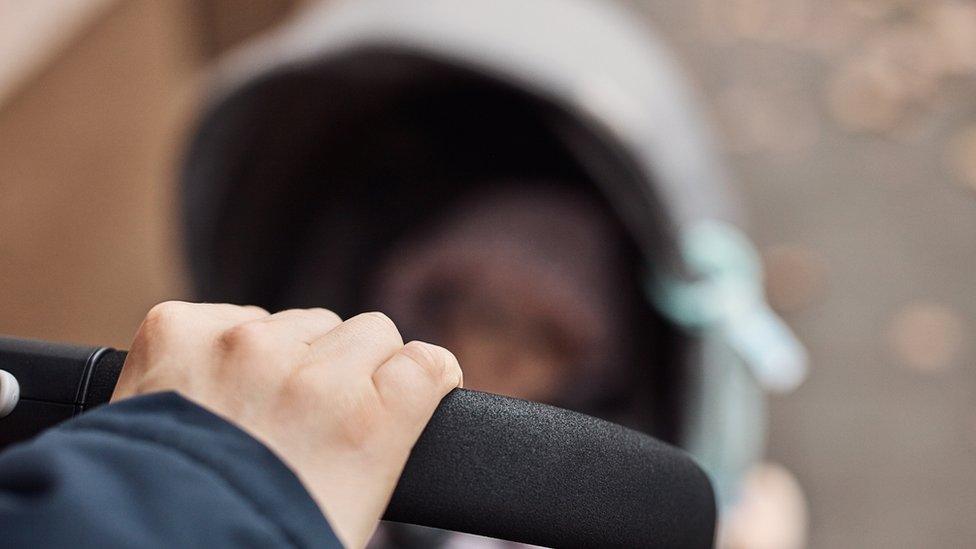
Emilie says parents who have lost their jobs due to Covid are turning to the baby bank for help
Emilie recalls how one mother got in touch to ask for help after being put on furlough since the end of her maternity leave.
"She cried on her doorstep because I gave her nappies, wipes and winter clothes for her child. I went away with a lump in my throat."
A report from London-based baby bank charity Little Village and the Joseph Rowntree Foundation, seen first by BBC Newsnight, outlines the scale, depth and persistence of poverty in families with children aged under five across the UK.
It finds one-third (34%) of these children live below the poverty line - meaning their family lives on less than 60% of the median household income in the UK.
That equates to 1.3 million under-fives, according to the analysis. Two in five of these families have seen a reduction in their earnings as a result of the ongoing Covid crisis.
London has the worst rates of poverty in the UK for children in this age group. The North East of England runs the capital a close second, which doesn't surprise Kay - one of Emilie's regulars.
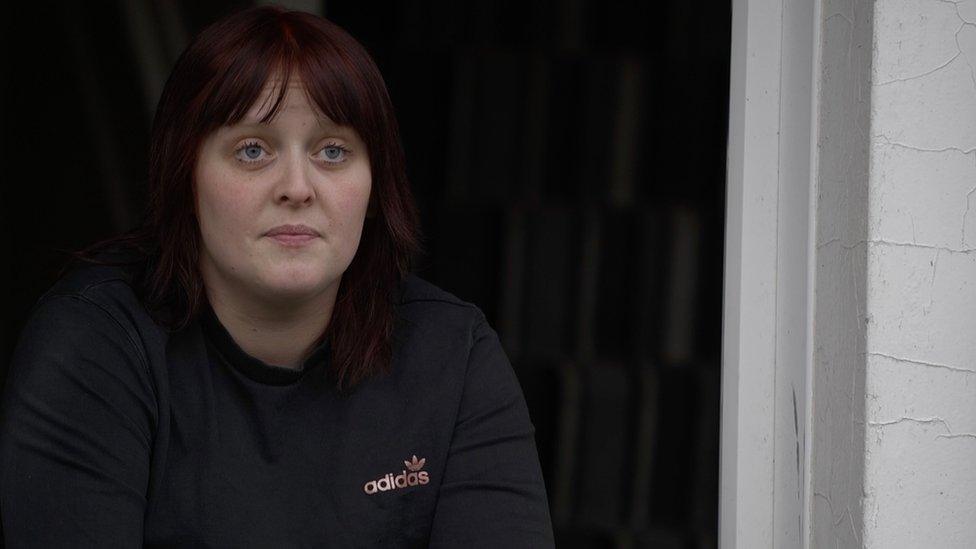
Mum of four Kay says she has had to go without food and clothes herself to provide for her children
Kay moved to Hartlepool from London in search of cheaper rents and a better life for her young children. She's worked in supermarkets but is now a single parent with four children, aged between seven months and seven years old. Struggling on benefits, and after housing costs, Kay's left with around £600 for the month.
"That's got to pay your gas, your electric, your water, your council tax and any other bills that may pop up," she says. "And your food. So within a week my money's gone.
"I've gone without meals, without clothes. I have one meal a day providing my children have three. It's basic chicken nuggets and chips, fish fingers and chips. The diets are really poor because the money's not there to buy fresh food, to cook fresh meals."
Little Village founder Sophia Parker, who wrote the report, says Covid had made things "much worse" for families who were already struggling.
"People have used up savings. People have gone to their families and friends and borrowed what they can," she says. "As a result, we're seeing families who are falling into rent arrears. We're seeing families who are having to rely on high-cost loans.
"We're just very worried about where this is going to land for families that are already in a difficult situation."
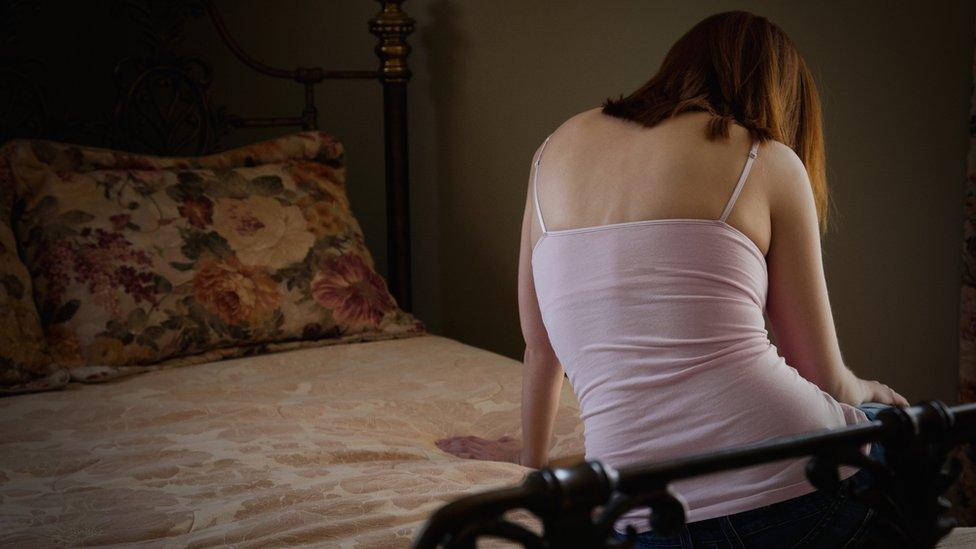
One mother says she is left with £10 a month after paying her bills
Rachel, not her real name, is a trained nursery practitioner who spent six months in a refuge after fleeing an abusive relationship.
She now lives in cramped temporary accommodation with her three-year-old son and nine-month-old daughter. She is employed for a few hours a week by Little Village, but relies for now on universal credit.
"When we came out of the refuge, I looked for full-time work but I couldn't make it pay because of childcare costs," she tells me. "My rent is so high, after bills I'm left with £10 a month for us to live on. I don't drink, smoke or buy clothes.
"If my son is invited to a child's birthday party, I die, as I know I have to say no. I can't afford a present. It's very embarrassing to keep asking for help. Little Village did our Christmas. Otherwise there would have been nothing under the tree.
"The pandemic has made things more expensive. We're always home, so electric and gas costs more. Food shopping online costs more too. My children are my reason for everything. But I can't see a way out. I am stuck in a trap."
The government said it was committed to "making sure every child gets the best start in life, and this is central to our steadfast determination to level up opportunity across the country".
A spokesman said it had targeted its support to families most in need by raising the living wage and spending hundreds of billions to safeguard jobs.
"Additionally, we have boosted welfare support by billions, introduced the £170m Covid Winter Grant Scheme to help children and families during the coldest months, and in April we will be increasing the value of our Healthy Start vouchers by over a third to help those in need with young children."
Related topics
- Published4 February 2021
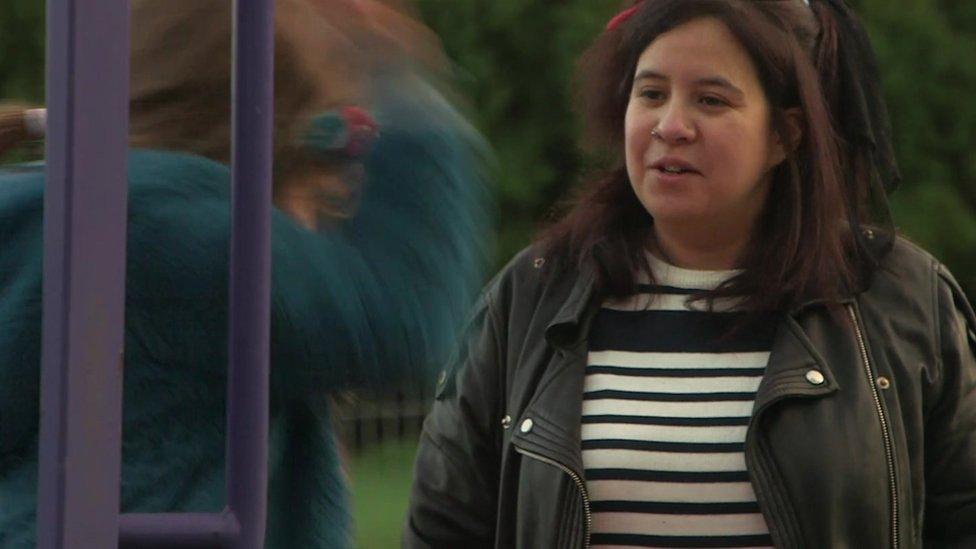
- Published2 July 2021
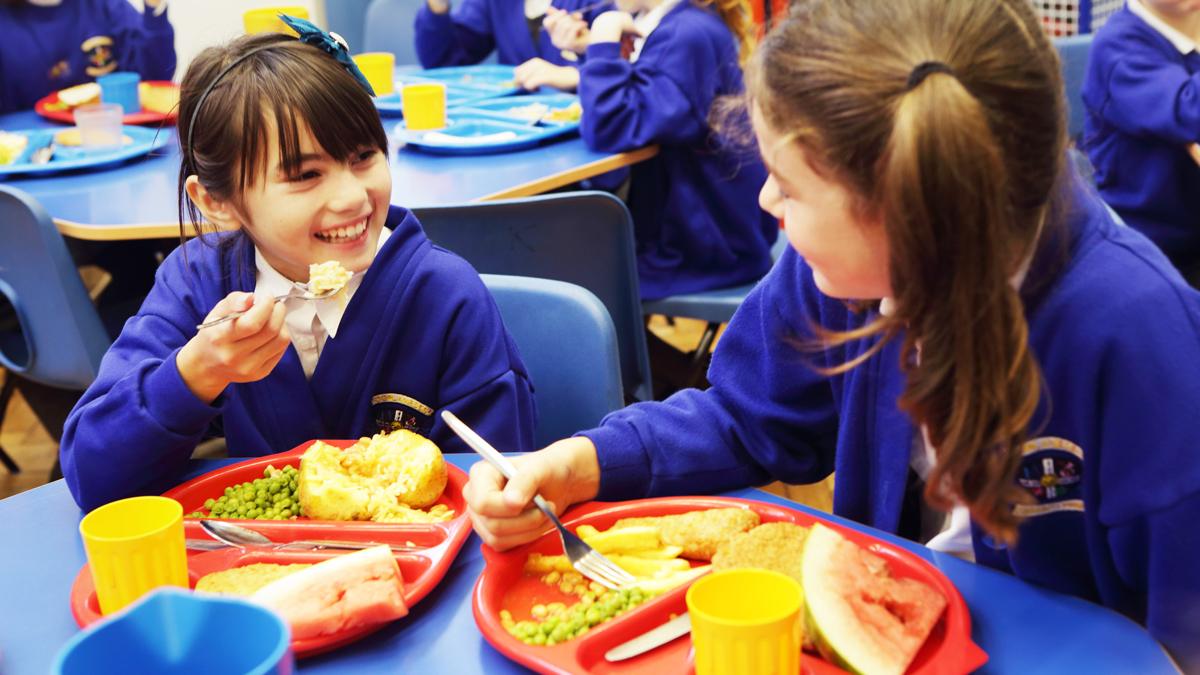
- Published9 December 2020
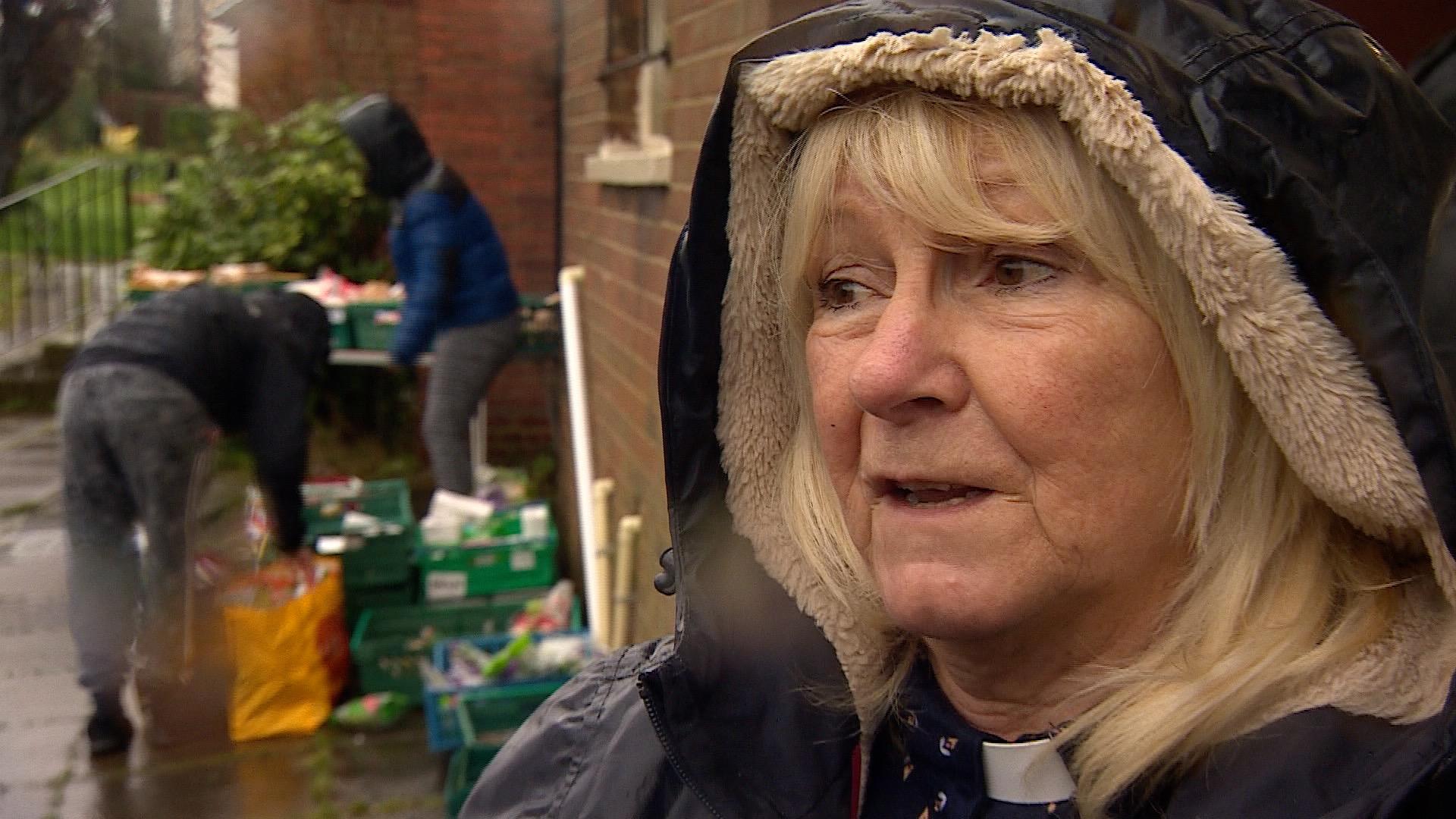
- Published29 June 2020
